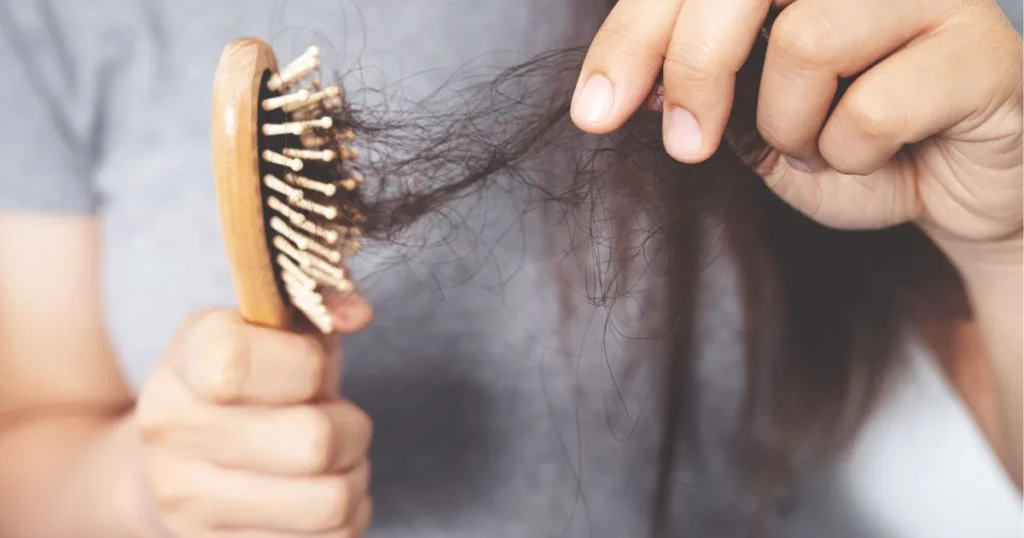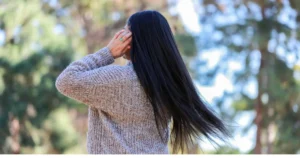Thinning Hair in Women: Causes, Treatments, and Solution
Having thick and lustrous hair is often associated with beauty and vitality. However, many women experience the distressing issue of thinning hair. Thinning hair can significantly impact a woman’s self-esteem and confidence. In this article, we will explore the causes of thinning hair in women, discuss various treatment options available, and provide practical solutions to address this common concern.
 Thinning Hair in Women: Causes, Treatments, and Solutions
Thinning Hair in Women: Causes, Treatments, and Solutions
Thinning hair in women can be attributed to various factors, ranging from hormonal changes to genetic predisposition. Understanding the underlying causes is crucial in determining the most appropriate treatment approach. Let’s delve into some common causes of thinning hair in women and explore the available solutions.
1. Understanding the Causes of Thinning Hair
- Hormonal Changes
Hormonal changes, such as those experienced during pregnancy, menopause, or due to conditions like polycystic ovary syndrome (PCOS), can contribute to hair loss in women. Fluctuating hormone levels affect the hair growth cycle, leading to excessive shedding and thinning.
- Genetic Predisposition
Genetics play a significant role in hair loss. Women with a family history of thinning hair or androgenetic alopecia are more prone to experiencing hair thinning themselves. Genetic factors can influence the sensitivity of hair follicles to hormones, leading to gradual hair loss over time.
- Nutritional Deficiencies
A poor diet lacking essential nutrients can impact hair health and contribute to thinning. Inadequate intake of vitamins, minerals, and proteins necessary for hair growth can result in weakened hair follicles and increased hair shedding.
You may also like.How To Go From Thin Hair To Thick Hair Naturally:8 Tips And Tricks
- Medical Conditions
Certain medical conditions like thyroid disorders, autoimmune diseases, and scalp conditions like alopecia areata can cause hair thinning in women. Treating the underlying medical condition is crucial to address the hair loss issue effectively.
- Excessive Styling or Heat Damage
Frequent use of hairstyling tools, harsh chemicals, and heat styling can damage hair follicles, leading to thinning and breakage. Over time, these practices weaken the hair shafts, resulting in less voluminous hair.
2. Diagnosis and Evaluation
If you are experiencing thinning hair, it is advisable to consult a dermatologist who specializes in hair disorders. During the consultation, the dermatologist will conduct a thorough examination and evaluate your medical history to identify potential causes of your hair loss.
To provide a comprehensive evaluation, the dermatologist may perform a scalp and hair analysis, which can involve microscopic examination, pull tests, and blood tests. These diagnostic measures help determine the underlying cause of your thinning hair and guide the appropriate treatment plan.
3. Treatment Options for Thinning Hair
Numerous treatment options are available to address thinning hair in women. The choice of treatment depends on the underlying cause, severity of hair loss, and individual preferences. Here are some common treatment approaches:
- Topical Medications and Treatments
Topical solutions can be applied directly to the scalp to stimulate hair growth. These solutions are commonly available over-the-counter and can help slow down hair loss and promote regrowth.
- Oral Medications
Prescription medications may be recommended for women with androgenetic alopecia. These medications work by blocking the conversion of testosterone to dihydrotestosterone (DHT), a hormone that contributes to hair loss.
- Low-Level Laser Therapy
Low-level laser therapy (LLLT) utilizes red light to stimulate hair growth. It is a non-invasive treatment option that can be performed at home using specialized devices or in clinics under professional supervision.
- Platelet-Rich Plasma (PRP) Therapy
PRP therapy involves injecting concentrated platelets derived from the patient’s own blood into the scalp. Platelets contain growth factors that promote hair growth and improve the overall quality of existing hair.
- Hair Transplantation
For severe cases of hair loss, hair transplantation can be a viable option. This surgical procedure involves transplanting hair follicles from the donor area to the thinning or balding areas of the scalp, resulting in natural-looking hair growth.
4. Lifestyle Changes and Home Remedies
In addition to medical treatments, adopting certain lifestyle changes and incorporating home remedies can contribute to healthier hair growth. Consider the following:
- Balanced Diet and Nutritional Supplements
Ensure your diet includes a variety of vitamins, minerals, and proteins essential for hair health. Additionally, consult with a healthcare professional to determine if nutritional supplements can benefit you.
- Proper Hair Care Routine
Follow a gentle hair care routine, including regular washing, conditioning, and moisturizing. Avoid excessive brushing or towel-drying, as it can lead to hair breakage.
- Stress Management
Stress can exacerbate hair loss. Engage in stress-reducing activities such as yoga, meditation, or engaging hobbies to promote overall well-being and healthier hair.
- Avoiding Excessive Heat and Chemicals
Minimize the use of heat-styling tools, and opt for natural hair care products that are free from harsh chemicals. Heat and chemical damage can weaken the hair and contribute to thinning.
5. Boosting Hair Growth with Natural Remedies
Several natural remedies can support hair growth and improve hair health. Consider incorporating the following into your routine:
- Essential Oils
Certain essential oils, such as lavender, rosemary, and peppermint oil, have been found to promote hair growth when applied to the scalp. Dilute the oils and gently massage them into the scalp for maximum benefit.
- Scalp Massage
Regular scalp massages can stimulate blood circulation and promote hair growth. Use your fingertips to massage the scalp in circular motions for a few minutes each day.
- Herbal Supplements
Herbal supplements like saw palmetto, ginseng, and horsetail extract are believed to support hair growth and strengthen hair follicles. Consult with a healthcare professional before starting any new supplements.
6. Wigs, Hairpieces, and Hair Extensions
For women experiencing significant hair loss, wigs, hairpieces, and hair extensions can provide temporary solutions. Choose high-quality options that match your natural hair color and texture and ensure proper maintenance and care.
7. Coping with Thinning Hair Emotionally
Thinning hair can have a profound emotional impact on women. It is essential to address the emotional aspect of hair loss and find ways to cope:
- Support Groups and Counseling
Joining support groups or seeking counseling can provide a safe space to share experiences, seek advice, and receive emotional support from others facing similar challenges.
- Acceptance and Self-Care
Practicing self-acceptance and self-care is crucial. Embrace your unique beauty and focus on overall well-being to boost self-confidence.
Conclusion
Thinning hair in women is a common concern that can be caused by various factors, including hormonal changes, genetics, and lifestyle choices. By understanding the causes and exploring treatment options, women can regain their confidence and promote healthier hair growth. Remember, seeking professional advice and adopting a holistic approach that includes medical treatments, lifestyle changes, and emotional support is key to addressing thinning hair effectively.
FAQs
Is hair loss in women reversible?
In many cases, hair loss in women can be reversed or effectively managed with the right treatment approach. Consult with a dermatologist to determine the underlying cause and develop a personalized treatment plan.
Can stress cause hair loss in women?
Yes, stress can contribute to hair loss in women. It is known as telogen effluvium, a condition in which hair follicles prematurely enter the resting phase, leading to excessive shedding.
Can I prevent hair loss with a healthy diet alone?
While a healthy diet is essential for overall hair health, it may not be sufficient to prevent hair loss caused by underlying medical conditions or genetic factors. However, a balanced diet can support the effectiveness of other treatments and promote hair growth.


 Thinning Hair in Women: Causes, Treatments, and Solutions
Thinning Hair in Women: Causes, Treatments, and Solutions
